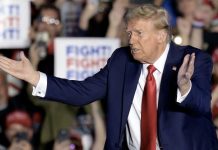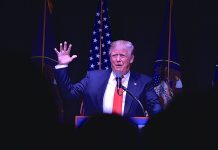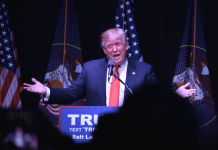
Aug. 20 (UPI) — In a move that is expected to further heighten tensions between Washington and Beijing, the Trump administration on Wednesday suspended or terminated three bilateral agreements with Hong Kong.
The State Department announced in a statement that it notified Hong Kong authorities Wednesday of its suspension or termination of bilateral agreements concerning extradition and tex exemptions.
The move follows President Donald Trump signing an executive order mid-July stating Hong Kong was no longer “sufficiently autonomous” from mainland China to warrant special status under U.S. law after Beijing imposed a draconian and controversial national security law July 1 over the former British colony.
The United States, Britain and other Western countries have condemned China for imposing the law, which criminalizes acts its says threaten China’s national security, for reneging on its agreement to grant Hong Kong 50 years of autonomy when it was returned to Chinese rule from Britain in 1997 while activists say Beijing will use the law to target its critics in the city.
“The Chinese Communist Party chose to crush the freedoms and autonomy of the people of Hong Kong,” Secretary of State Mike Pompeo said in a statement. “Because of the CCP’s actions, we are terminating or suspending three of our bilateral agreements with the territory.”
The Trump administration has already taken several moves to punish China over its treatment of Hong Kong and protesters there including sanctioning 11 people, including Carrie Lam, the political leader of Hong Kong, earlier this month for restricting the freedom of expression or assembly of people in Hong Kong under an act that was signed into being following the imposition of the national security law.
China has repeatedly balked at the United States’ moves concerning Hong Kong and has demanded it stop meddling in its internal affairs.





